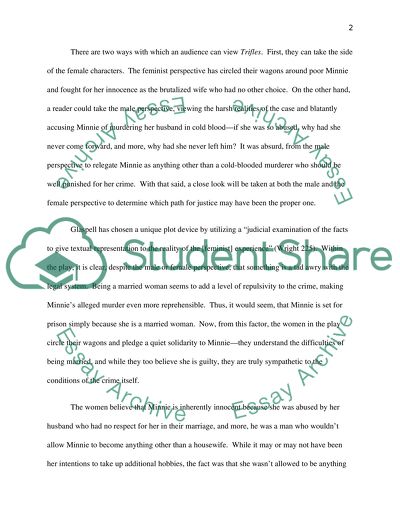Cite this document
(“Feminist Inquiries in Trifles Essay Example | Topics and Well Written Essays - 1750 words”, n.d.)
Retrieved from https://studentshare.org/literature/1450540-trifles
Retrieved from https://studentshare.org/literature/1450540-trifles
(Feminist Inquiries in Trifles Essay Example | Topics and Well Written Essays - 1750 Words)
https://studentshare.org/literature/1450540-trifles.
https://studentshare.org/literature/1450540-trifles.
“Feminist Inquiries in Trifles Essay Example | Topics and Well Written Essays - 1750 Words”, n.d. https://studentshare.org/literature/1450540-trifles.


